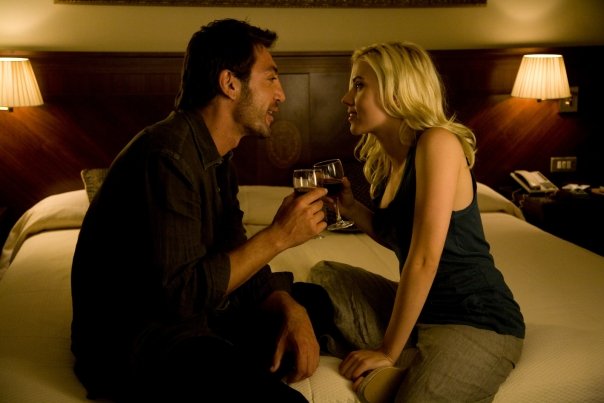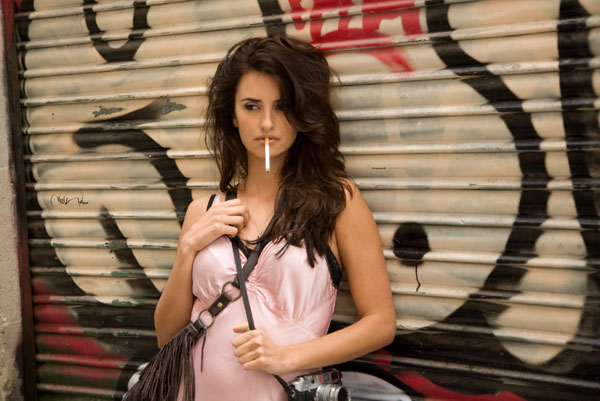Vicky Cristina Barcelona is a trivial, shallow film about trivial, shallow characters, played by extremely capable and fascinating actors. It's basically a goof on François Truffaut's Jules et Jim, an updating and transposition of its wry, deadpan ironies about self-involved Bohemians, or would-be Bohemians. But Truffaut's film is both more exuberant, with a young man's high passions, and more mature, in its uneasy sense that a price will have to be paid for the feckless adventuring of unmoored hearts.

Woody Allen borrows Truffaut's humor and attitude but uses them solely for diversion — and Vicky Cristina Barcelona is diverting enough, with amusing situations and dialogue. There's nothing at stake in the film, however, or in the lives of its characters, except the gratification of passing moods. The two artists in the film, whom Allen might possibly see as positive characters, in fact produce generic “modern art”, abstractions as devoid of meaning as their lives.
One of the title characters is interested in Gaudi, and Gaudi's work is featured in the movie from time to time, but filmed in such a way that its architectural forms are unreadable. Barcelona, itself one of the title characters, is never evoked with any precision or enthusiasm — the film has no real sense of place or atmosphere, or no more than one could get from a tourist brochure.

We are left with the pleasure of watching some very fine actors go through their paces. Javier Bardem reveals a deft sense of comic timing — he seems to realize that the character he's playing is an idiot, even if you're never quite sure Allen does.
The three female characters are all portrayed as immature, weak and neurotic — they have none of the self-possessed willfulness of Jeanne Moreau's Catherine in Jules et Jim, her sense of joyful romantic nihilism. Scarlett Johansson and Penélope Cruz are always intriguing to watch on screen but the real bravura performance here is by Rebecca Hall, who was so wonderful in The Prestige. She's just as wonderful in this film, in an entirely different role and performing with an entirely convincing American accent.
She has none of the glamor or obvious sex appeal of Johansson or Cruz, but she rivets attention by the truth of her performance, and her subtle erotic awakening is far more vexing than the overt sensuality of her co-stars. Allen seems to recognize this, which makes it all the more infuriating that Hall's character has no development. None of the characters do. They have “experiences” which leave them all essentially unchanged.
I suppose this can be read as Woody Allen's philosophical view of life — as an exercise in marking time — but it's profoundly superficial and profoundly undramatic. The bleak future that Hall's Vicky walks off into at the film's end seems like a punishment Allen is inflicting on the actress herself, for suggesting, through her art, that the experience of living might add up to more than Allen can bring himself to admit.
